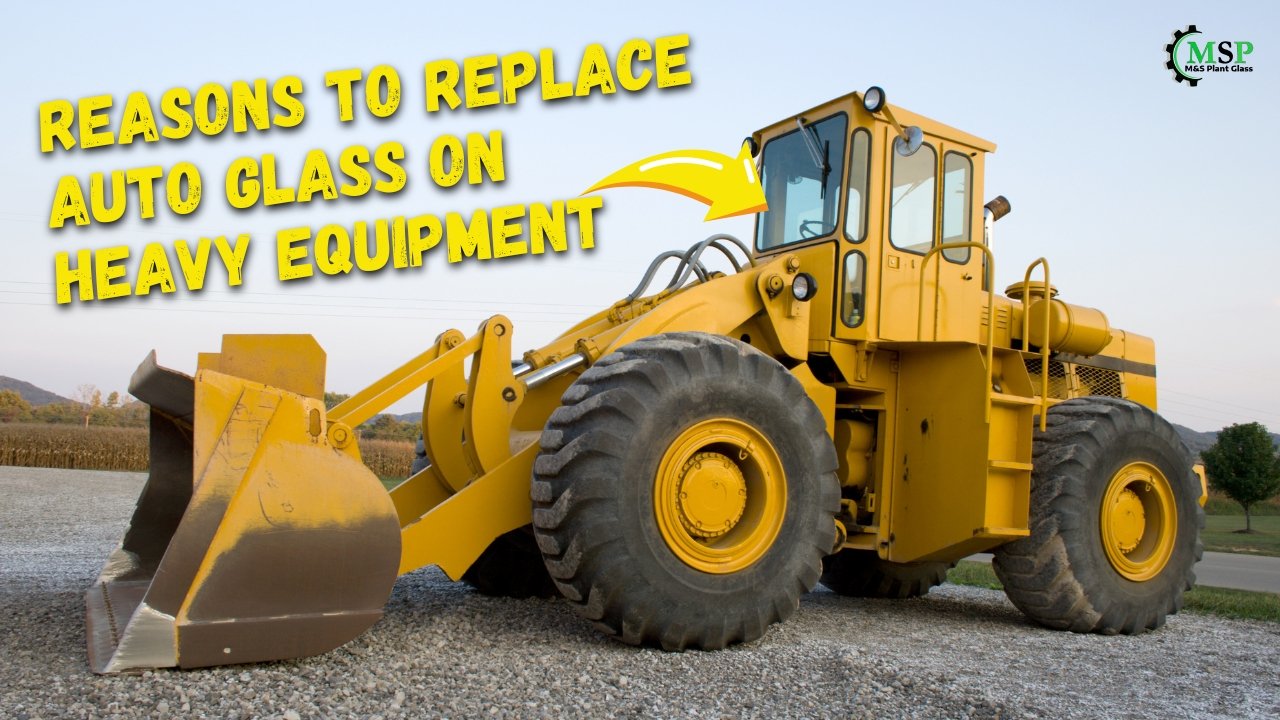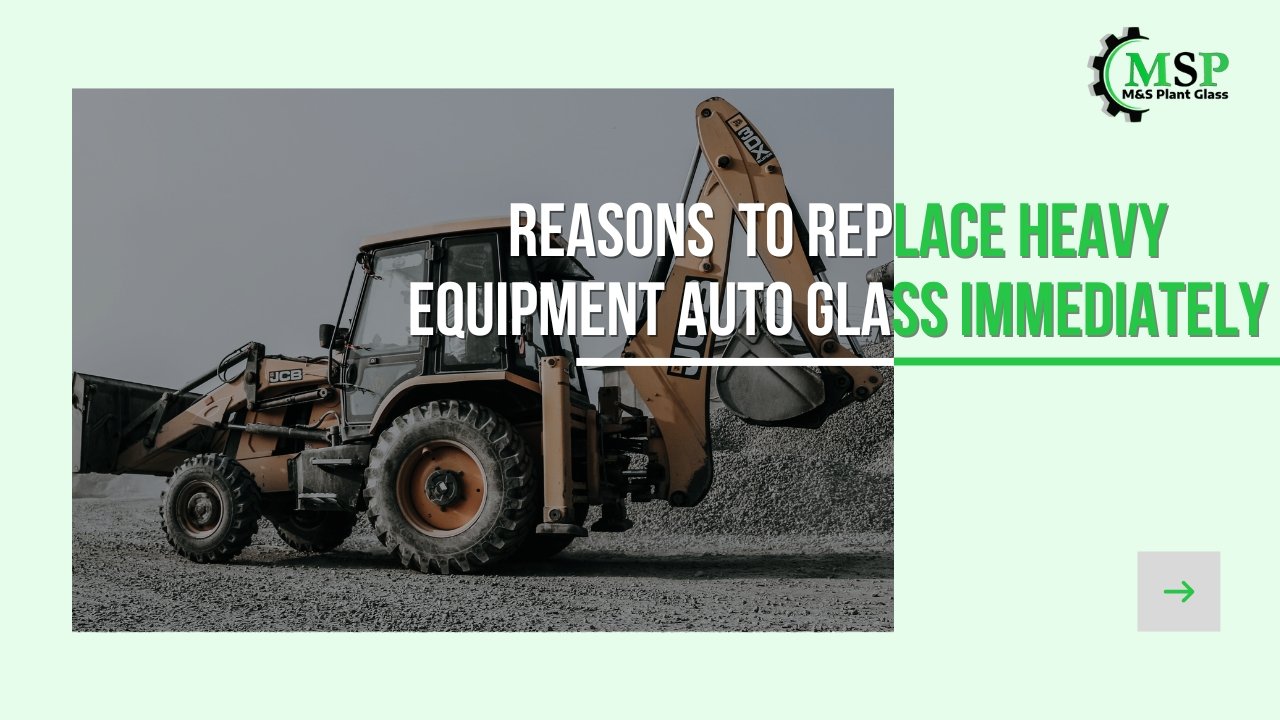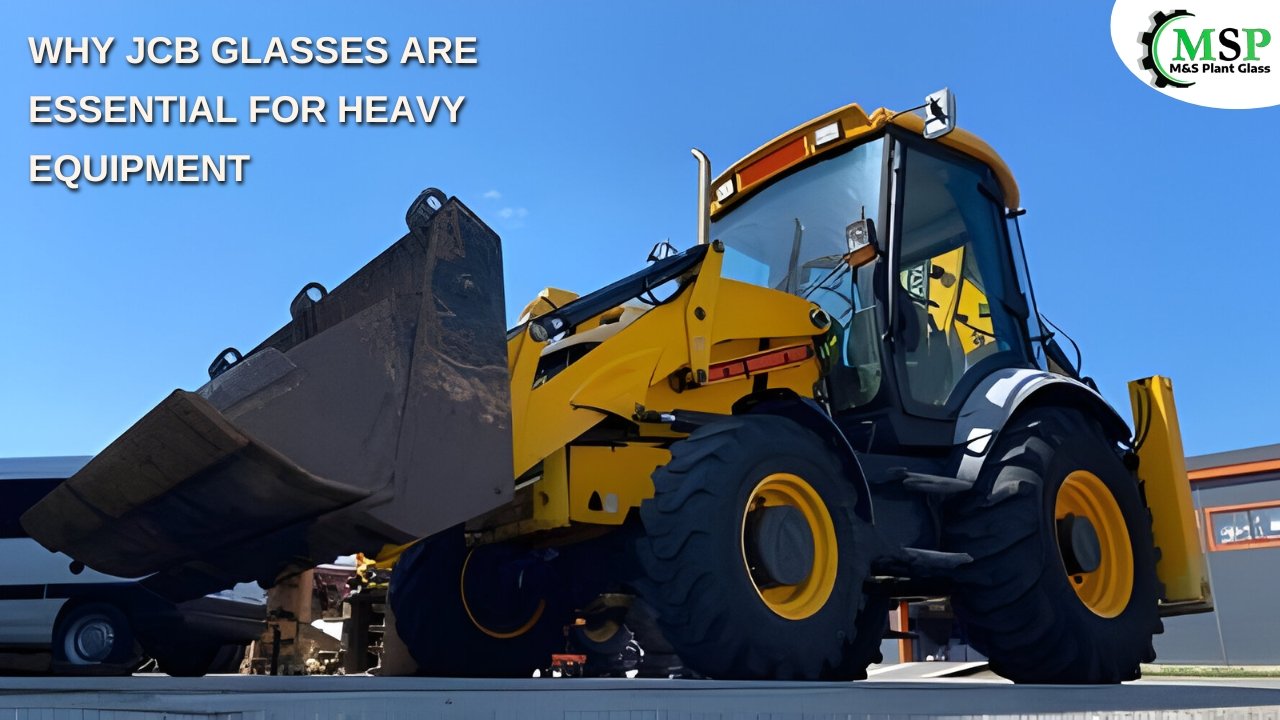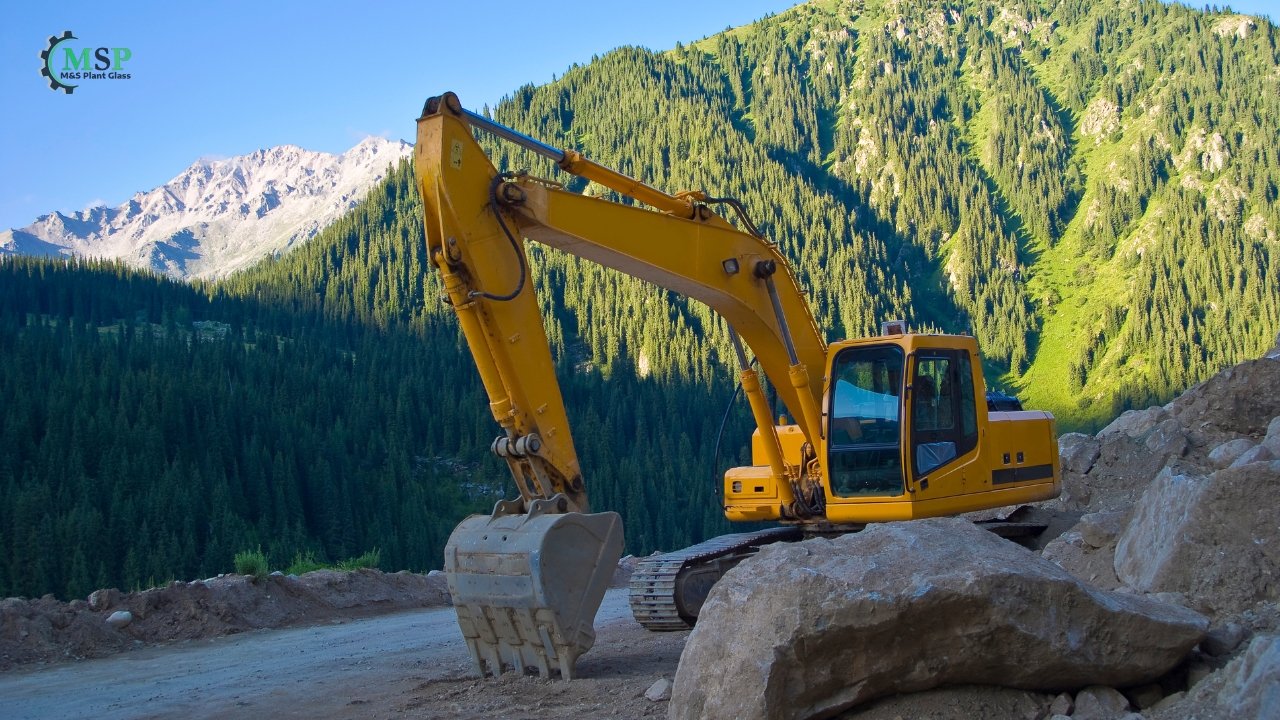3 Critical Reasons to Replace Your Excavator's Auto Glass Immediately
Immediate replacement of excavator auto glass is crucial for three urgent reasons: safety, operational efficiency, and structural integrity. First, damaged auto glass poses serious safety risks by obstructing the operator's view and increasing the chance of accidents. Weakened glass can also shatter under stress, causing injuries, so maintaining clear, intact glass is essential for operator safety and compliance with regulations. Second, clear and undamaged glass is vital for precise operation, as operators need an unobstructed view to maneuver equipment accurately. Damaged glass causes visual distortions, leading to mistakes and reduced productivity. Immediate replacement minimises downtime, ensuring the equipment remains in optimal working condition and avoids costly delays. Lastly, auto glass contributes to the structural strength of the operator’s cabin. Compromised glass weakens this structure, making the equipment less safe and potentially causing further damage. Prompt replacement maintains the integrity of the machinery, prolongs its lifespan, and prevents more expensive repairs down the line. In summary, replacing damaged auto glass immediately is essential for maintaining safety, ensuring efficient operations, and preserving the structural integrity of heavy equipment. Prioritising these replacements protects operators, enhances productivity, and keeps machinery in top condition. Auto glass in heavy equipment, including excavators, bulldozers, and cranes, plays a crucial role in the safety, efficiency, and structural integrity of the machinery, especially excavator glass. Here are some key points highlighting its importance: 1. Operator Protection: The primary function of auto glass in heavy equipment is to protect the operator from external elements such as debris, dust, and weather conditions. High Quality glass can withstand impacts from flying objects, ensuring the safety of the operator. 2. Visibility: Clear and undamaged glass is essential for optimal visibility. Operators rely on unobstructed views to manoeuvre heavy equipment accurately and safely. Cracks, chips, or other damages can distort vision and increase the risk of accidents. 3. Regulatory Compliance: Many safety regulations and industry standards mandate the condition of auto glass in heavy equipment. Adhering to these regulations helps avoid legal issues and ensures a safe working environment. 1. Precision in Operation: Heavy equipment tasks require high precision. Clear glass ensures that operators can see their work area and equipment controls without any visual obstructions, leading to more accurate and efficient operations. 2. Reduced Downtime: Damaged glass can lead to downtime for repairs or replacements. Keeping the glass in good condition prevents unexpected interruptions, maintaining the flow of work and productivity. 3. Cost Savings: Immediate attention to auto glass issues can prevent more severe damage that might require expensive repairs or replacements. Efficient operations reduce fuel consumption and wear and tear on the machinery. 1. Cabin Stability: The glass in heavy equipment contributes to the overall structural integrity of the operator's cabin. Damaged glass can compromise the strength and stability of the cabin, posing a risk during heavy operations. 2. Durability of Equipment: Properly maintained auto glass protects the interior components of heavy equipment from external elements, extending the lifespan of the machinery and reducing maintenance costs. 3. Preventative Maintenance: Regular inspection and maintenance of auto glass are part of a broader strategy to keep heavy equipment in top working condition. Addressing minor issues promptly can prevent them from developing into major problems. 1. Identify Signs of Damage Regularly inspect the auto glass for cracks, chips, or any signs of damage. Pay attention to visibility issues, such as glare or distortion, which may indicate compromised glass integrity. 2. Assess the Extent of the Damage Determine whether the damage is minor (small chips or cracks) or major (large cracks, multiple chips, shattered glass). Decide if a repair is feasible or if full replacement is necessary. 3. Choose a Qualified Replacement Service Research and select a reputable auto glass replacement service that specialises in heavy equipment. Ensure the service provider has the necessary certifications and experience with your specific type of equipment. 4. Schedule the Replacement Arrange for the replacement at a convenient time to minimise operational downtime. Coordinate with the service provider to ensure they have the correct glass and tools for the job. 5. Prepare the Equipment Clean the equipment and the surrounding area to ensure a safe and efficient replacement process. Secure the machinery to prevent any movement during the glass replacement. 6. Supervise the Replacement Process Monitor the replacement process to ensure it is conducted according to safety standards and manufacturer guidelines. Confirm that the new glass is installed correctly, with no gaps or misalignments. 7. PostReplacement Inspection Conduct a thorough inspection of the new glass to ensure it is free from defects and properly installed. Check for any issues with visibility or structural integrity. 8. Maintenance Tips to Prolong Glass Lifespan Clean the glass regularly with appropriate cleaning solutions to prevent buildup of debris. Perform routine inspections to catch and address any minor damage before it worsens. Educate operators on best practices to avoid damage, such as avoiding unnecessary impacts and protecting the glass from extreme conditions. By following these steps, you can ensure the auto glass in your heavy equipment is replaced promptly and correctly, maintaining the safety, efficiency, and structural integrity of your machinery. 1. What are the common causes of damage to heavy equipment auto glass? Damage can occur due to various reasons, including impacts from flying debris, rocks, or tools, extreme weather conditions like hail or storms, and accidents during operation or transportation. 2. Can minor chips or cracks in auto glass be repaired, or is replacement necessary? It depends on the extent and location of the damage. Minor chips and small cracks can often be repaired using specialised techniques, but larger or multiple cracks may require full replacement for safety and structural integrity. 3. How long does it take to replace heavy equipment auto glass? The duration of replacement varies depending on factors such as the extent of damage, accessibility of the glass, and the experience of the service provider. In general, replacement can take a few hours to complete. 4. Will insurance cover the cost of heavy equipment auto glass replacement? It depends on your insurance policy and the circumstances of the damage. Some insurance policies may cover auto glass replacement for heavy equipment, while others may require additional coverage or deductible payments. 5. Can I continue to operate heavy equipment with damaged auto glass? It is not recommended to operate heavy equipment with damaged auto glass, as it poses safety risks to the operator and others on the worksite. Prompt replacement or repair is essential to maintain safety and compliance with regulations. 6. How can I prevent damage to heavy equipment auto glass in the future? Implementing preventive measures such as using protective covers, avoiding unnecessary impacts, and regular maintenance can help prevent damage to auto glass. Additionally, educating operators on safe handling practices and providing proper training can minimise the risk of accidents. Replacing heavy equipment auto glass, including excavator glass, promptly is vital for safety, efficiency, and durability. Damaged glass poses risks to operators and equipment integrity, affecting productivity and potentially leading to costly repairs. By addressing issues immediately and following proper replacement procedures, operators can ensure optimal performance, compliance with regulations, and prolonged equipment lifespan. Regular maintenance and preventive measures further mitigate risks, promoting a safe and productive working environment. Prioritizing auto glass replacement safeguards both operators and machinery, enhancing overall operational effectiveness and longevity.Importance of Auto Glass in Heavy Equipment
Safety
Operational Efficiency
Structural Integrity
Steps for Immediate Heavy Equipment Auto Glass Replacement
Frequently Asked Questions (FAQ)
Conclusion






